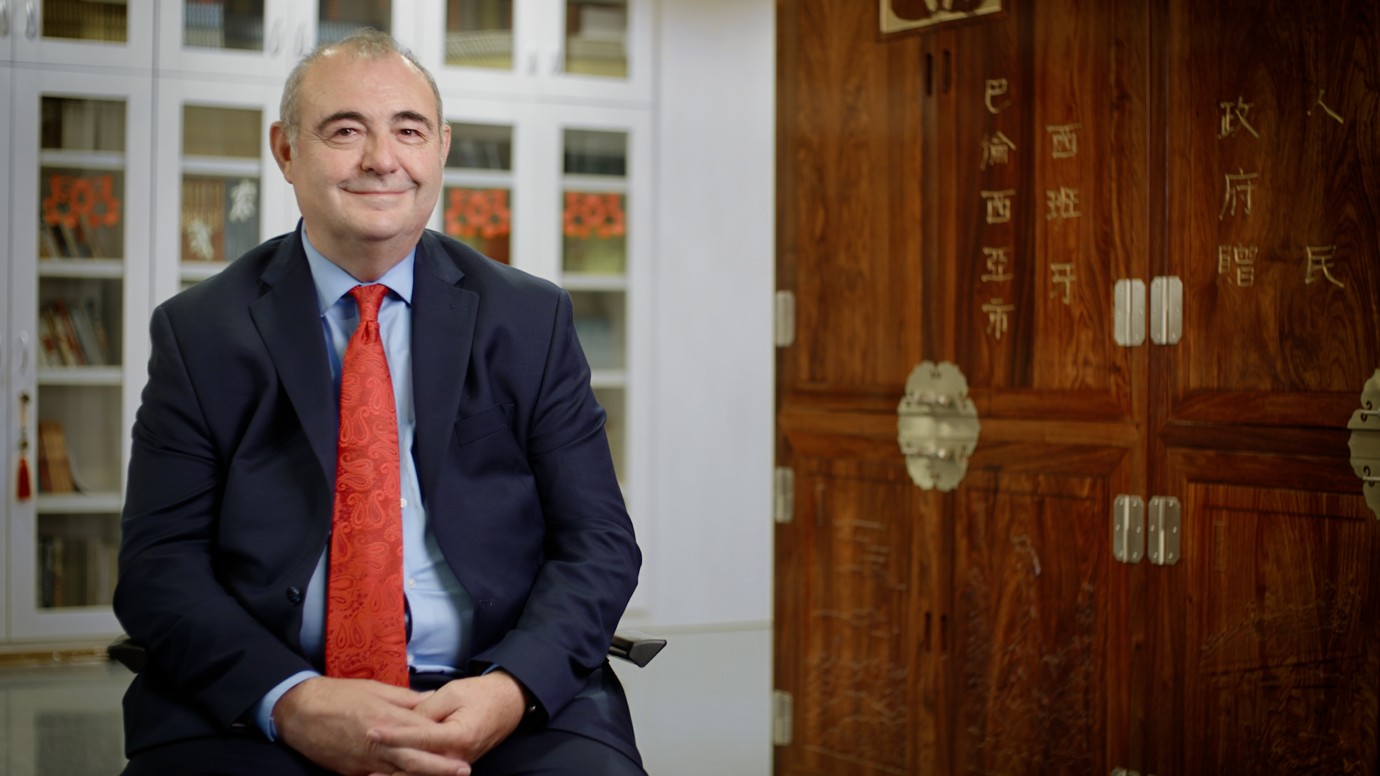Vicente Andreu: Sharing Chinese culture with Spanish society
Red lanterns, red paper cuttings, red calligraphy scrolls. The colour red, symbolic of luck and happiness in Chinese culture, dominates the Confucius Institute at the University of Valencia. Over the past 17 years, the institute has taught Chinese language and culture to more than 8,000 students and has been named "Confucius Institute of the Year" three times, which is a testament to its enduring impact and excellence. At the heart of this success is Director Vicente Andreu, 安文龍 (An Wenlong), whose leadership has been instrumental in shaping the institute's direction and growth.

Vicente Andreu (Photo/Patrick Shead-Simmonds)
"The Confucius Institute in Valencia," Andreu explains, "was created in collaboration with Northeast Normal University." Together, they created a language program and a cultural program, which were previously rare in Spain. Beyond teaching, the collaboration also extends to academic research and faculty exchange, fostering deeper educational ties between the two countries.
The institute's mission goes far beyond engaging with university students. It reaches a diverse audience, including professionals aiming to engage with China through business or career opportunities, as well as young children just beginning to explore the wider world. "The Confucius Institute is deeply embedded in the local community," Andreu says.
In 2012, the institute partnered with the Valencia City Council to introduce Chinese New Year celebrations to the city, featuring vibrant cultural activities such as lion dances, kung fu demonstrations, and calligraphy workshops. These efforts have become annual highlights and an important bridge between Chinese and Spanish cultures.
The institute also runs an annual drawing competition for young students based on an imaginary story of Confucius arriving in Valencia via the Silk Road. What started with only 300 student participants has now expanded to over 2,000. "Our goal is to engage young people and spark their interest in Chinese culture," Andreu shares.
In 2010, Andreu became the Spanish editor-in-chief of the bilingual Confucius Institute Magazine, which publishes a range of cultural articles, and launched a complementary blog. The blog proved to be a powerful tool for connecting Confucius Institutes in Spain with their counterparts across Latin America, further strengthening global cultural ties.
Last year, the Second Forum of Directors of Spanish Confucius Institutes was hosted in Valencia. It served as a collaborative platform for sharing ideas, resources, and future initiatives across various institutes. Together, the directors discussed new academic collaborations with Chinese universities and explored the possibility of expanding the forum to include Confucius Institutes in Latin America.
Ultimately, Andreu views the Confucius Institute as a vital bridge between Chinese and Spanish cultures — a place where people come together to share knowledge, history, and philosophy. "We aim to keep growing and reach more of Valencia and Spain, to let society know that China is here," he says.
Andreu's role in prompting China-Spain exchanges extends beyond the Confucius Institute. He has played a key role in forging and strengthening sister-city relationships between Valencia and several Chinese cities, including Guangzhou, Chengdu, and Xi'an. "In just a decade, the City Council of Valencia has shown remarkable commitment to building strong cultural and commercial ties with China," he notes.
As a passionate advocate for cultural exchange, Andreu believes that such relations enrich society. "China has offered not only me but also our society a different perspective to view the world, so that's why we should learn about cultures. Learning about cultures means learning how to do things differently to improve society for a better world."
(Web editor: Hongyu, Wu Chengliang)










